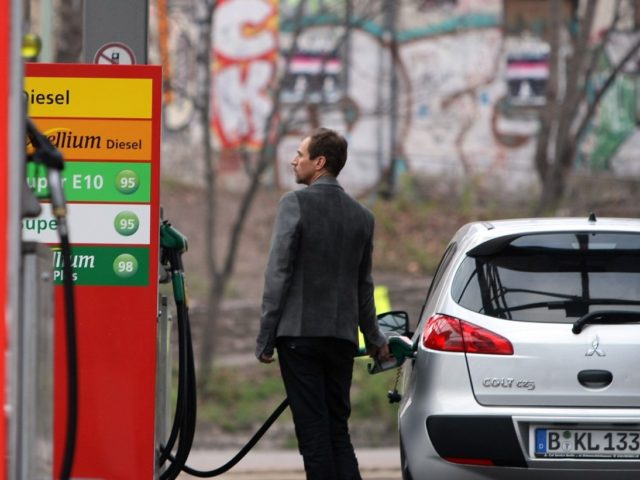Diesel prices in Germany have hit record levels, as the energy crisis currently plaguing Europe continues.
Many German motorists are paying more than ever to refill their vehicles, as the price of diesel in the country hits its highest level ever.
The jump has been linked to an increase in the carbon tax, as well as issues with oil supply as a result of the ongoing political crisis in Kazakhstan.
The average price of diesel across the federal republic reached €1.58 per litre ($6.80 a gallon), according to a report by German motoring association ADAC, surpassing a previous high seen in November.
Petrol prices have also increased, with the cost of one litre of Super E10 hitting €1.648 ($7.08 a gallon), six cents off of its previous all-time high in 2012.
ADAC notes that an increase in carbon tax has contributed to the increase, calculating that about one-and-a-half cents of the per litre increase can be put down to the tax for both fuels.
One ADAC expert also cites an increase a hike in oil prices caused by the ongoing political crisis in Kazakhstan as another reason for the increase, according to Der Spiegel.
Eurozone Hits Record 5 Per Cent Inflation in December, Energy Prices Remain High https://t.co/CX327CuFKS
— Breitbart London (@BreitbartLondon) January 9, 2022
The record cost of diesel in Germany comes as consumers in the country have already had to contend with record inflation.
Inflation in the Eurozone hit a record 5 per cent in December, breaking the previous record of 4.9 per cent set the month before.
One major culprit for the increase has been a significant rise in the cost of energy prices across the bloc, a partial result of issues surrounding the supply of natural gas from Russia.
While Russia — Europe’s largest provider of energy — had previously promised to increase supply to the continent, this has failed to materialise.
The Moscow administration has been accused of withholding supplies, a claim that President Vladimir Putin has vehemently denied.
There is also some speculation that Belarus — through which gas pipelines travel before reaching Eastern Europe — may be tampering with supply, as the nation locks horns with the EU over the ongoing migrant crisis occurring on the nation’s borders with the bloc.
Not Like That! Greta Thunberg Decries Inclusion of Nuclear, Gas in EU Green Playbook https://t.co/PIxHykAVV8
— Breitbart London (@BreitbartLondon) December 23, 2021
Despite Europe’s ongoing struggles with energy, many states within the bloc have decried the European Commission’s “taxonomy of environmentally sustainable economic activities” of defining Nuclear as a green power source.
Criticisms from the likes of Germany and Austria have mirrored those made by climate activist Greta Thunberg, who lambasted the source’s so-called “amber” rating as “fake climate action”.
“As climate activists have been battling to ensure taxonomy paves the way for real climate action, the “leaders” have been working hard on rebranding fossil gas and nuclear power to “sustainable”, when they are neither sustainable nor green,” reads an opinion piece on the issue co-authored by Thunberg. “This could turn into a real life climate-nightmare.”
Meanwhile, one government spokesman from Germany also criticised the EU decision over alleged issues with the safety of the technology.
“We consider nuclear technology to be dangerous,” the spokesman said.

COMMENTS
Please let us know if you're having issues with commenting.